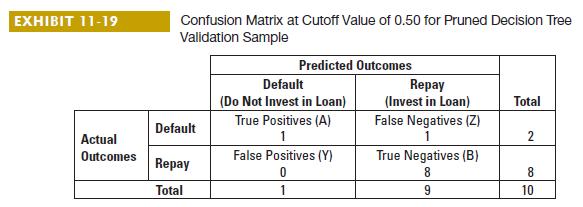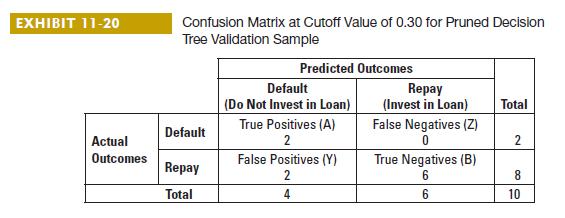Sun TV sells TV sets. It does not sell smart TVs so customers do not come to
Question:
Sun TV sells TV sets. It does not sell smart TVs so customers do not come to Sun TV if they want to purchase smart TVs. Sun TV wants to start selling smart TVs and will only sell smart TVs to customers to whom they advertise. Managers use customer information (income level, previous purchase history) to decide which customers they should target.
The team needs to decide how sure it must be in predicting customer interest in a smart TV. If it is too cautious, it will choose a very high cutoff probability and only market to customers who it believes are very likely to be in the market for a smart TV. This may cause them to miss out on many customers. If they are too aggressive and choose a low cutoff probability, they may identify more individuals interested in buying smart TVs but also end up wasting marketing dollars on customers who are not interested in purchasing smart TVs.
To choose a cutoff probability, the team develops the confusion matrices below for two cutoff probabilities on a validation sample of 1,000 households comprising 100 buyers and 900 non-buyers of smart TVs.

Required
1. Complete the confusion matrices for the validation set as in Exhibits 11-19 and 11-20.


2. A team of management accountants at SunTV estimates the payoffs from their actions. For every customer it targets, SunTV will spend $20 to market to that customer. For every smart TV it sells, SunTV makes a profit of $200 after taking into account the $20 it spends on that customer. Construct the payoff matrix as in Exhibit 11-21 and determine which cut off value SunTV should use.
 3. Are there any other factors SunTV should consider before building such a model?
3. Are there any other factors SunTV should consider before building such a model?
Step by Step Answer:

Horngrens Cost Accounting A Managerial Emphasis
ISBN: 9780135628478
17th Edition
Authors: Srikant M. Datar, Madhav V. Rajan





